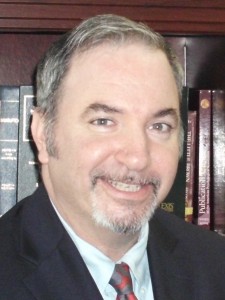
Attorney Mitchell J. Cohen
U.S. Citizenship through Naturalization
by Mitchell J. Cohen, Esquire
U.S. Citizenship is typically obtained by permanent residents through a process called naturalization, and filed with USCIS Form N-400. The applicant must be 18 years of age or older, and be able to show that for the last 5 years (and through the time the application is pending,) that he or she has:
- been a lawful permanent resident;
- been a person of “good moral character”;
- been continuously resident and physically present (over half the time) in the United States;
- been attached to the principals of the Constitution.
Permanent residents who are married to and residing with a U.S. Citizen spouse for 3 years and through the time the N-400 application, may apply for naturalization after 3 years of permanent resident status. The rules are even more relaxed for members of the armed services and honorably discharged veterans.
Additionally, the applicant generally must demonstrate a basic knowledge of U.S. history and government and be able to read, write and speak basic English. Applicants over 50 who have been permanent residents for over 20 years are excused from the English proficiency requirement. Applicants over 55 who have been permanent residents for over 15 years are likewise exempt.
Applicants for naturalization are fingerprinted and go through a criminal background check, and applicants are required to submit certified copies of any arrest report(s) and dispositions of the criminal case(s). The USCIS not only uses the criminal history information to determine whether an applicant has been a person of good moral character, the agency also uses the information to determine whether the applicant’s criminal record subjects him or her to deportation. Many individuals who wind up in Immigration Court removal proceedings are there because they filed for naturalization when they should never have done it. Individuals who the USCIS determines are subject to deportation may even be arrested at the time of their naturalization interview.
If you failed to file required income tax returns or are delinquent in your taxes, the USCIS may determine that you are not a person of good moral character and deny your application. If you have minor children residing outside of your home, the USCIS may deny your naturalization application if you do not satisfactorily demonstrate that you have been supporting your children. If you have made multiple trips outside of the United States, the USCIS officer may demand to see documentary evidence that you meet the continuous physical presence and residence requirement (like proof of tax returns, employment, housing, etc.).
“Automatic U.S. Citizenship”
If you were under the age of 18 and a lawful permanent resident, one of your parents was a U.S. Citizen at the time, and you were in that parent’s custody, you may already be a U.S. Citizen by operation of law. The law governing automatic acquisition of citizenship have changed over years. The most recent amendment to the law, the Child Citizenship Act of 2000, eliminated the previous general requirement that both parents had to be naturalized before the child reached the age of 18. The amendment however is not retroactive. A recent Federal Court of Appeals decision in the 2nd circuit held derivative citizenship under former Section 321(a) does not require permanent resident status prior to turning 18, as long as the individual was residing in the United States before age 18. Nwozuzu v. Holder (2d Cir. 2013). The court found Nwozuzu’s application for adjustment of status prior to his 18th birthday was sufficient indication of his intention to remain permanently in the United States to constitute “residing permanently” under the derivation statute. The second circuit decision applies to cases in the states of New York, Connecticut, and Vermont. It remains to be seen if this interpretation is adopted in other federal circuits.
Children born abroad to a U.S. Citizen parent may be U.S. Citizens at birth, regardless of whether the birth was registered with the U.S. Embassy. The laws governing acquisition of U.S. citizenship for children born abroad are complicated and have changed many times. Since 1790, there have been two prerequisites for transmitting U.S. citizenship to children born abroad: (1) At least one natural parent must have been a U.S. citizen when the child was born (an exception is for a posthumous child) and (2) The U.S. citizen parent(s) must have resided or been physically present in the United States for the time required by the law in effect when the child was born.
Individuals who automatically acquire U.S. Citizenship may apply for a Certificate of Citizenship from USCIS, by filing a Form N-600 with evidence of eligibility. An alternative, and generally much faster way of acquiring proof of acquisition of automatic citizenship is by filing an application for a U.S. passport with the State Department, along with proof of eligibility.
Schedule an appointment with Attorney Mitchell J. Cohen to determine your eligibility for naturalization, or to determine if you already acquired U.S. Citizenship by operation of law. Call the immigration law offices of Mitchell J. Cohen, P.A. in Hallandale Beach or Fort Myers, Florida.
Information contained in this website is not intended to create an attorney-client relationship, nor does it constitute legal advice to any person reviewing such information. No electronic communication with Attorney Cohen on its own will generate an attorney-client relationship. The hiring of a lawyer is an important decision that should not be based solely on advertisements. If you have a question, please call Attorney Mitchell J. Cohen for a consultation: Hallandale Beach (954) 457-1941 or Fort Myers (239) 931-6558 www.GreenCardCohen.com
Would You Like to Know More?




